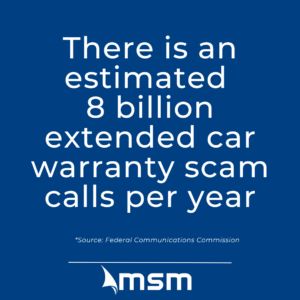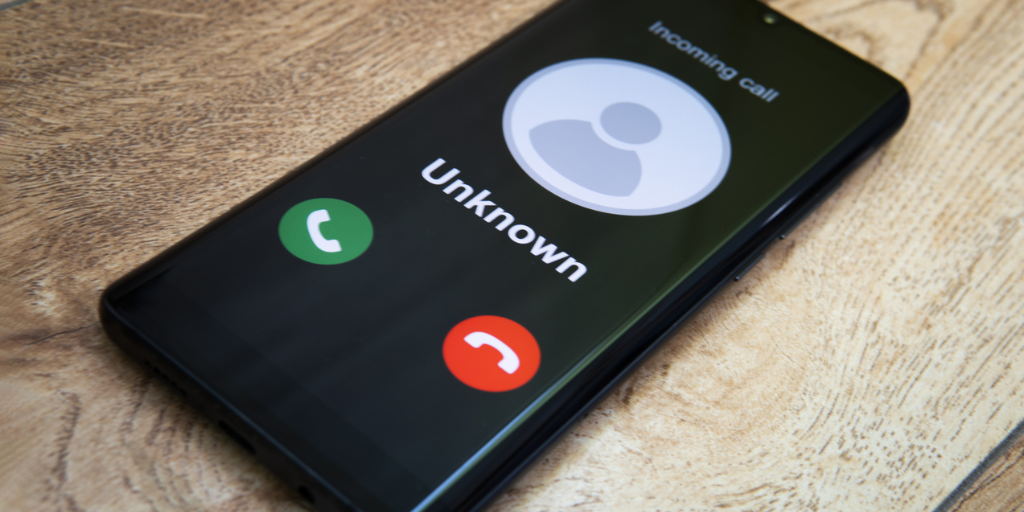“Hello, we are contacting you today because your car warranty is about to expire…”
We’ve all received these annoying phone calls, and no matter how much we guard our privacy, the extended car warranty scammers seem to find our numbers and call. In our increasingly digital world, opportunities for fraudulent activities have increased, even within the automobile industry. One recurring issue is the auto-extended warranty phone scam.
This post aims to demystify the history of these scams and offer tips to safeguard against them.
Tracing the Origins
Auto extended warranty phone scams aren’t a novel occurrence. Their existence can be traced back to when extended warranties first entered the automobile scene. Scammers have fine-tuned their tactics with time to appear more legitimate and persuasive.
The early iterations of these scams were heavily reliant on landline calls. Scammers would dial random numbers, optimistically hoping to connect with a vehicle owner. However, the advent of robocalling technology marked a significant shift in their approach, enabling them to cast a wider net by making thousands of calls simultaneously.
As we ventured into the mid-2000s, the scams became more nuanced. Scammers started leveraging customer databases, which they either purchased or stole, to gain in-depth information about vehicle owners. This wealth of information made their sales pitches remarkably convincing.
The Modern Scam Landscape
 Fast-forward to the present, and scammers have upped their game even more. They now masquerade as legitimate companies, employing spoofed caller IDs and replicating the phone menus of real businesses. Their sophistication has reached a point where they can accurately detail your vehicle’s make, model, and even its service history.
Fast-forward to the present, and scammers have upped their game even more. They now masquerade as legitimate companies, employing spoofed caller IDs and replicating the phone menus of real businesses. Their sophistication has reached a point where they can accurately detail your vehicle’s make, model, and even its service history.
The primary goal of these scams is to bamboozle vehicle owners into buying an extended warranty that is either nonexistent or holds no real value. The scam calls are often characterized by a sense of urgency, with scammers asserting that your warranty is on the brink of expiration. They may also entice you with ‘exclusive’ or ‘limited-time’ deals to get you to commit hastily.
Breaking Down the Scam Techniques
Scammers employ a plethora of tactics to con their victims. One commonly used strategy is “spoofing,” where they manipulate the caller ID to make it seem like the call is from a trusted source or local number. This trick increases the likelihood of the recipient answering the call.
Another strategy is the use of fear and urgency. Scammers often state that your car’s warranty is about to expire, and if you don’t extend it immediately, you’ll have to bear hefty repair costs in the future. The fear of these unforeseen expenses often prompts individuals to make impulsive decisions.
Scammers are also adept at creating an illusion of legitimacy. They might have accurate information about your vehicle and its warranty, making their offer seem more credible. Remember, however, that such information can be easily obtained, and its presence doesn’t guarantee authenticity.
Strategies to Safeguard Against Scams
It’s essential to stay vigilant and well-informed to protect yourself. Here are some preventative measures:
1. Disconnect unsolicited calls, particularly those pressing for immediate action.
2. Never share personal or financial information unless you initiate the contact and trust the entity.
3. Thoroughly research before agreeing to any extended warranty.
4. Register your number on the National Do Not Call Registry.
Knowledge is our greatest defense against scams. By understanding the evolution of auto extended warranty phone scams and staying alert, we can safeguard ourselves and our finances.
Buy Extended Car Warranties from Auto Dealerships
In the maze of car warranty options, one thing is certain: consumers should stick to purchasing their extended car warranties directly from an auto dealership. Why, you ask? For starters, dealerships offer unparalleled accountability. With a physical location and reputation at stake, they’re a reliable source for such an important purchase.
Additionally, dealership personnel are well-versed in explaining the nuances of warranty terms. This ensures that you, as a consumer, have complete clarity about what you’re signing up for. On the other hand, warranties offered over phone calls or unsolicited emails are notorious for being vague and untrustworthy.
So, the next time you’re contemplating an extended car warranty, remember that the trusted confines of an auto dealership are your best bet.
Scams That Target Auto Dealerships
Auto dealerships are not exempt from scams either; they, too, can fall victim to sophisticated frauds. Here’s a brief rundown of three well-known scams specifically targeting auto dealers.
1. Vehicle Export Scams:
There is a rising trend in scams involving international buyers, known as vehicle export scams. In this scam, a supposed overseas buyer contacts a dealership interested in purchasing a vehicle, typically a luxury model. They tend to offer more than the asking price to cover ‘shipping costs,’ intending to pay with a cashier’s check or wire transfer. If the dealer accepts, they’ll soon find the check is fake, or the transfer bounces back.
2. Curbstoning:
Curbstoning is a fraudulent practice where dishonest sellers pose as private sellers to sell used cars. They typically acquire these vehicles from auctions, and their primary targets are unsuspecting dealers, who end up with problem cars with a laundry list of undisclosed issues.
3. Straw Purchases:
In a straw purchase scam, a person with good credit is persuaded (often unknowingly) to buy a vehicle on behalf of someone who wouldn’t qualify for financing due to poor credit. The dealership gets caught in the middle when the actual user of the vehicle defaults on payments.
Scam avoidance comes down to two main principles: vigilance and education. Dealerships and consumers alike need to stay updated about new scams on the horizon and how they operate. An educated consumer can spot and report suspicious behavior, preventing further damage. Dealerships, however, should maintain strict policies for verifying identities and conducting transactions. Remember, if a deal seems too good to be true, it probably is. Stay safe and informed.







